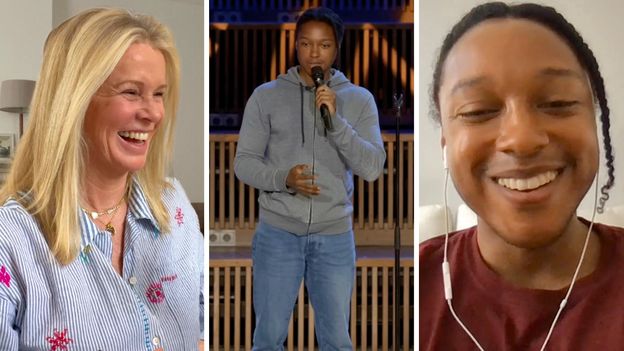But I think the best relationship with the audience is in person. A good meet and greet will let you know what needs to evolve about your set far more than putting that set out there and then reading all the comments. People are ready with opinions; you don’t need to wait until they’re online.
KK: Is social media both a blessing and a curse for comedy? Algorithms can expose you to a much wider audience, but does it also mean that that audience is potentially more fickle, where the algorithm drives people to you one day and to another comedian the next day? Is there something about the loyalty of an audience that is tested in this social media world?
JJ: Potentially, but I think that only happens if you get obsessed with numbers. I hold two things very top of mind when I think about any form of audience or influence.
One, nobody owes me anything. Just because you came to a show or you watched a video, it doesn’t mean you have to watch the next one. I work as hard as I can to make it so you would want to, but you don’t.
The second thing is that if you are focussed on the actual practice of what you’re doing, you’ll make better things to put online. At the end of the day, the most important thing is the show that I’m doing that night and the people that are there. Then, I put things up online for the people who didn’t make it to the show. But whether one million people watch it or 1,000 people watch it, the fact that the people at the show had the best time possible, that’s the most powerful and beneficial relationship, as far as the audience goes.
